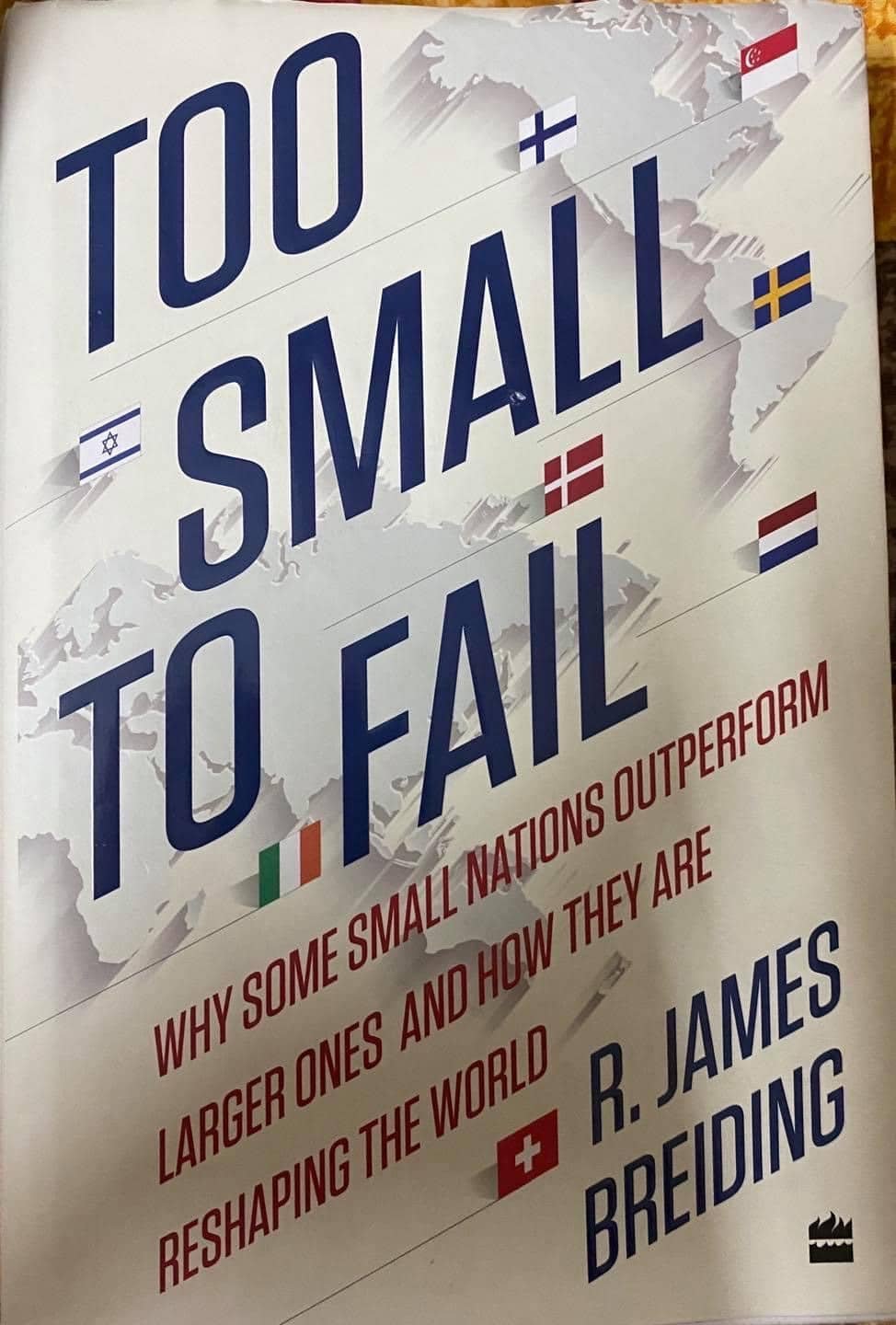
|
Getting your Trinity Audio player ready...
|
Traditionally power and strength are associated with size of a nation. The conventional wisdom is that bigger and more populous nations will be stronger and powerful. Conversely, smallness is equated with weakness. The smaller a nation is, the weaker its role and influence would be, it is surmised.
Author R. James Breiding challenges this conventional understanding in his recent book ‘Too Small To Fail’ (TSTF). TSTF is a though-provoking and exciting survey of S8 countries, including Denmark, Finland, Ireland, Israel, Netherlands, Singapore, Sweden and Switzerland. These countries, together with a few others that didn’t find place in this book like New Zealand and Norway, occupy a place in the top 20 most developed nations in the world. They are home to many big global corporations, famous for many successful development models and engaged in many disruptive social experiments.
Breiding is right in the sense that these smaller nations have achieved spectacular progress in almost all HR indices like quality education, universal healthcare, responsive and transparent governance and higher, yet affordable living standards for all. These things are a challenge for many big countries even in the developed world like America, China, Britain and Germany.
While smaller size is an advantage for these nations, it also becomes a disadvantage when seen from the availability of human and material resources. Some of these small nations are immigrant-friendly and believe in ‘brain-gain’ by inviting quality manpower from all over. Also important to understand is the fact that an average citizen in these smaller nations is politically more assertive than his counterparts in a big country. That puts pressure on the political leadership of these countries for accountability and performance.
TSTF highlights some of the significant achievements of these countries that can become role models for other countries – big and small alike. For example, Copenhagen, the capital city of Denmark, is a shining example of the people-centric urban planning, while Finland and all the Nordic countries have achieved great success in offering universal and quality education. While Singapore’s healthcare system is top-of-the-world, Australia’s battle against the gun culture showcases the willpower of a nation’s leadership. Israel is a glowing example as a ‘Start Up Nation’.
Through this wonderfully researched book, Breiding concludes that the smaller nations that are outperforming the larger ones are going to ‘reshape the world’. ‘Optimists and pessimists die the exact same death, but they live very different lives’, quipped Shimon Peres, former Israeli Prime Minister. Breiding’s optimism is contagious. One can be sceptical about his optimism when one sees a Haiti or a Cambodia or a Yemen. But as Breiding pointed out, the success of the smaller nations is not because of any exception, but because of certain processes that lead to their rise, like a Phoenix in the case of countries like Ireland, which was written off several time in the last seven decades.
It is those disruptive processes and practices showcased by these countries that will certainly play an important role in reshaping the emerging world order. One of the wonderful books that I have read in this year, and strongly recommend…….



